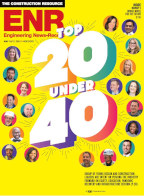 |
| Science Committee Chairman Boehlert (Photo courtesy of the Office of Rep. Sherwood Boehlert) |
The measure, approved July 12, by a 338-23 vote, puts future building probes under the aegis of the National Institute for Standards and Technology, which is part of the U.S. Commerce Dept. It also would ensure that investigative teams would have the authority to gain access to building sites and documents they need.
House Science Committee Chairman Sherwood Boehlert (R-N.Y.) said that a review of the World Trade Center aftermath showed that "our investigation system has its own failures." Boehlert says those problems include: no federal agency in charge of building probes, and the WTC investigative team's lack of authority to gain access to sites and data.Backers of the bill looked to the National Transportation Safety Board as a model. But the new bill doesn't set up another federal agency, like the NTSB. Instead, it authorizes NIST-appointed teams to probe individual accidents or collapses, on a case-by-case basis. One NIST staffer would be a member of each team.
Before approving the bill, the House added a package of amendments, including a provision specifying that investigative team members would be considered federal contract employees. That would protect them from liability, Boehlert says.
The American Society of Civil Engineers supports the bill and the amendments, says Brian Pallasch, ASCE director of government relations.
A companion bill was introduced in the Senate on May 9. But Pallasch says the Senate may vote on the House-passed measure, perhaps before the August recess.


Post a comment to this article
Report Abusive Comment